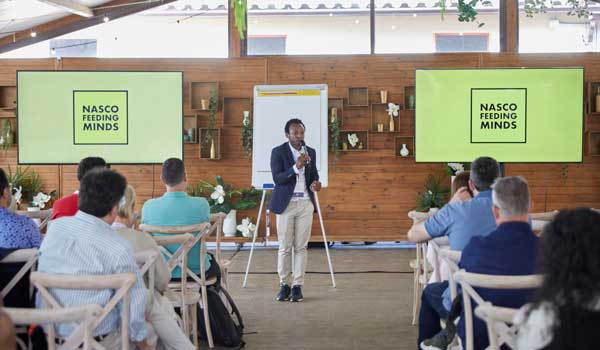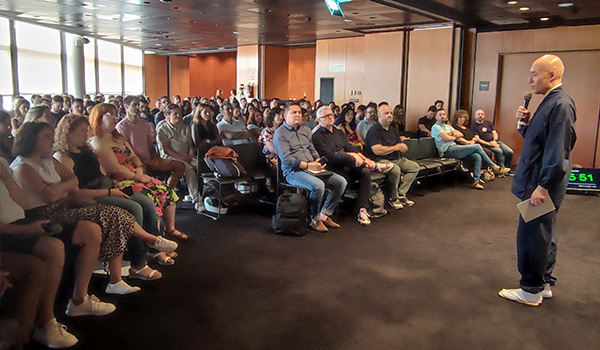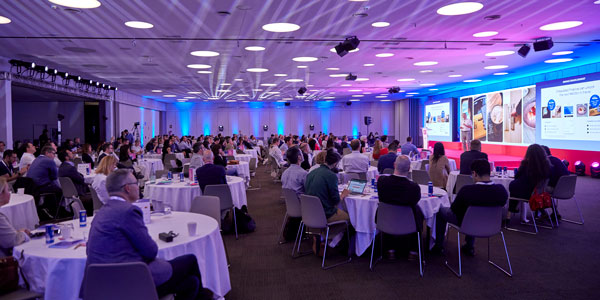May is European Diversity Month and at Voxel we have carried out a round table proposed by the company’s own LGTBI+ group and promoted by the Organa project.
With this, we wanted to take a step forward towards raising awareness of the reality of the group, with the ultimate goal of promoting the inclusion of gender diversity and sexual orientation in the workplace.
At the round table, we were joined by four speakers with different sexual orientations and gender identities, and with different life and work experiences. Sandra Vilaseca is a transgender activist, a meat processor in the Bonpreu group and a castellera. Lluis Giménez is account manager at Voxel, was born in 1981 and is gay. Alaitz Blanquer is a former employee of Voxel, full-time entrepreneur and activist for the LGTBI+ collective. And finally, Jose Pires, a Voxel employee in the operations team and “born gay“.
During the round table, we went through the life cycle of each person. We learned about the key personal experiences that helped in their self-knowledge and were fundamental in their acceptance, but also that of the people around them. Finally, we delved into how to create diverse and inclusive work environments with a dynamic of normalisation, without falling into commodification.
The first stage: childhood
All the speakers lived their childhood in the 80s and 90s. This was a time of uncertainty, misunderstanding and lack of reference points. A situation “more pronounced in rural environments”, as Jose pointed out.
In some cases, these doubts began to become clearer during adolescence, a stage marked by self-discovery through experiences in social circles. And also by the first revelations to people close to them such as family and friends.
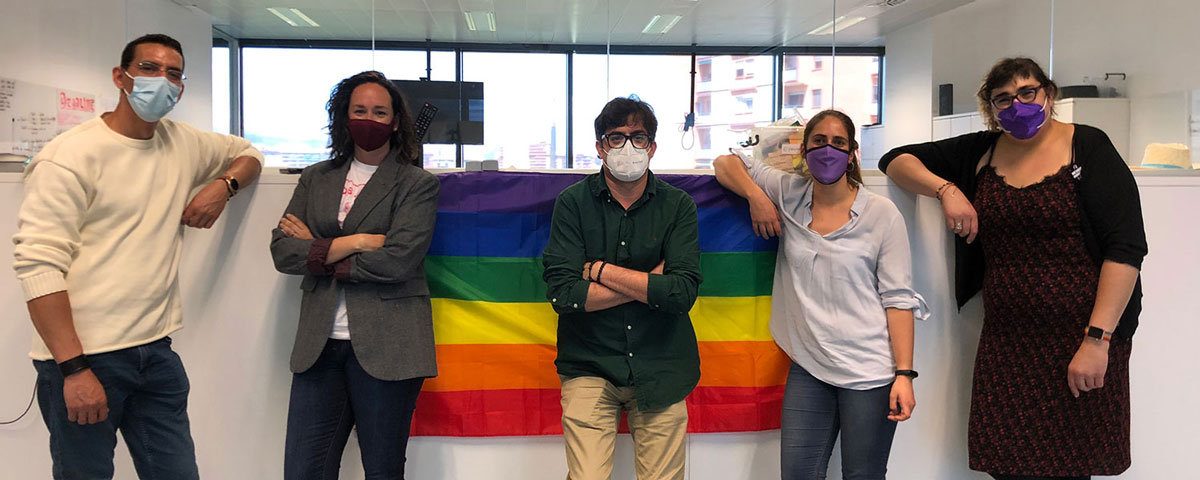 All the speakers agreed that support and understanding when expressing a sexual orientation other than hetero-normative is key. It is also important to be able to express it in any environment in order to feel free and to be able to act naturally, like any other person. It also serves as a tool to make visible a group that fights for equal rights. Knowledge and information about realities that are different from one’s own takes away confusion and, therefore, transforms hostility into empathy and curiosity. “In the long term, this translates into normalisation and therefore real inclusion, reaching the final objective,” Lluís emphasised.
All the speakers agreed that support and understanding when expressing a sexual orientation other than hetero-normative is key. It is also important to be able to express it in any environment in order to feel free and to be able to act naturally, like any other person. It also serves as a tool to make visible a group that fights for equal rights. Knowledge and information about realities that are different from one’s own takes away confusion and, therefore, transforms hostility into empathy and curiosity. “In the long term, this translates into normalisation and therefore real inclusion, reaching the final objective,” Lluís emphasised.
Referents and collectives
Belonging to a group, or to the LGTBI+ collective, in this case, provides referents, support and understanding about realities and experiences shared among members. However, it is disconcerting and even shocking to see how within the group itself there is internal discrimination, governed by the same rules set by society.
In this sense, Sandra explained that gay men continue to be the patriarchal figure and maintain and reproduce gender roles from a position of dominance.
Extrapolating this to other categories that could be grounds for discrimination in our society, we find a ladder of privilege within the collective. Thus, a trans, immigrant and racialised woman would occupy the last link on the ladder of social privileges and inclusion, as well as the first in terms of discrimination both in employment and in the other areas of her life.
Sexual orientation in the workplace
Can companies bring about social change? In Alaitz’s words, “unconscious biases are the first wall to work with”. One of the main conclusions at this point was that it is necessary to raise awareness inside and outside organisations to reduce the walls, as well as to use levers of change such as language.
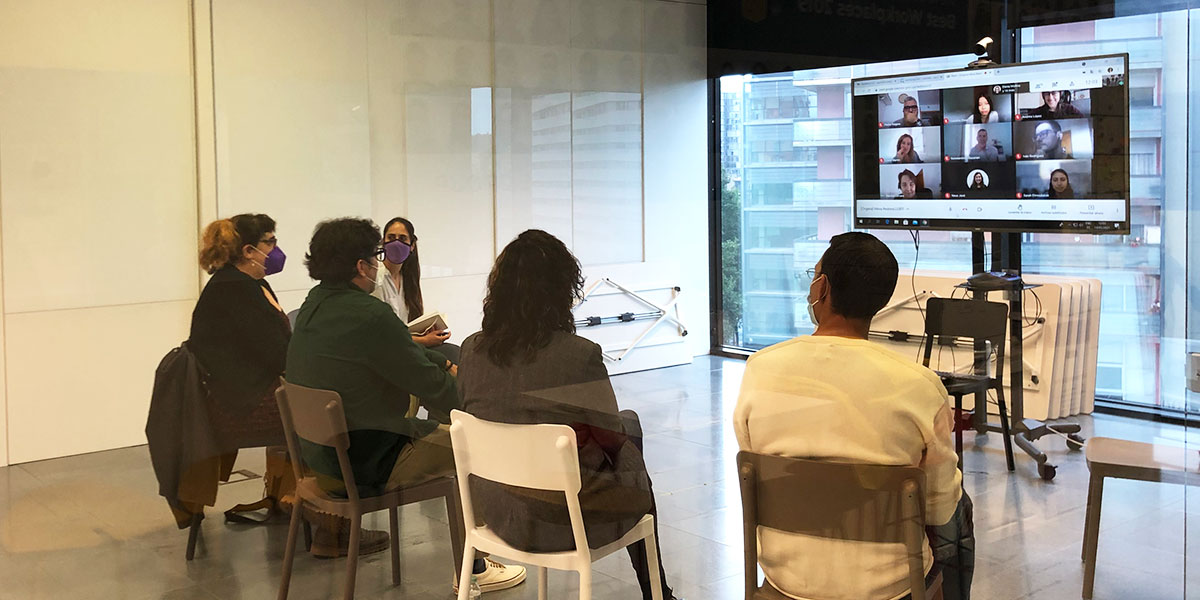
Nowadays, respect between people is no longer enough, but concrete measures are needed. Within organisations, cultural change has to come from the top, be conscious and real, avoiding the commercialisation of specific actions and opting for initiatives or projects that measure and objectify their impact in order to set new directions or give continuity to successful actions.
The round table discussed that the HR department and the steering committee have the responsibility to encourage and promote such actions. But it is also important that culture, values, diversity and real inclusion depend on each and every person in the organisation. It is all of us who are the agents of change, who create and live this internal culture and extend it to customers, suppliers and other new recruits.
In conclusion, companies are no more than the sum of the people who make them up and therefore have a great responsibility for and with society. It is in the hands of all of us to raise awareness of the different realities, eliminate any source of discrimination and promote the normalisation and full inclusion of any group, no matter how small a minority it may be, as each person is different but equal in terms of rights.
Organa’s initiative was very well received and was well attended by all Voxel employees. The session gave rise to new concerns that will soon be addressed by the Organa Project.
Many thanks to Sandra, Lluís, Alaitz and Jose for their participation. And to Anna for moderating the round table.









